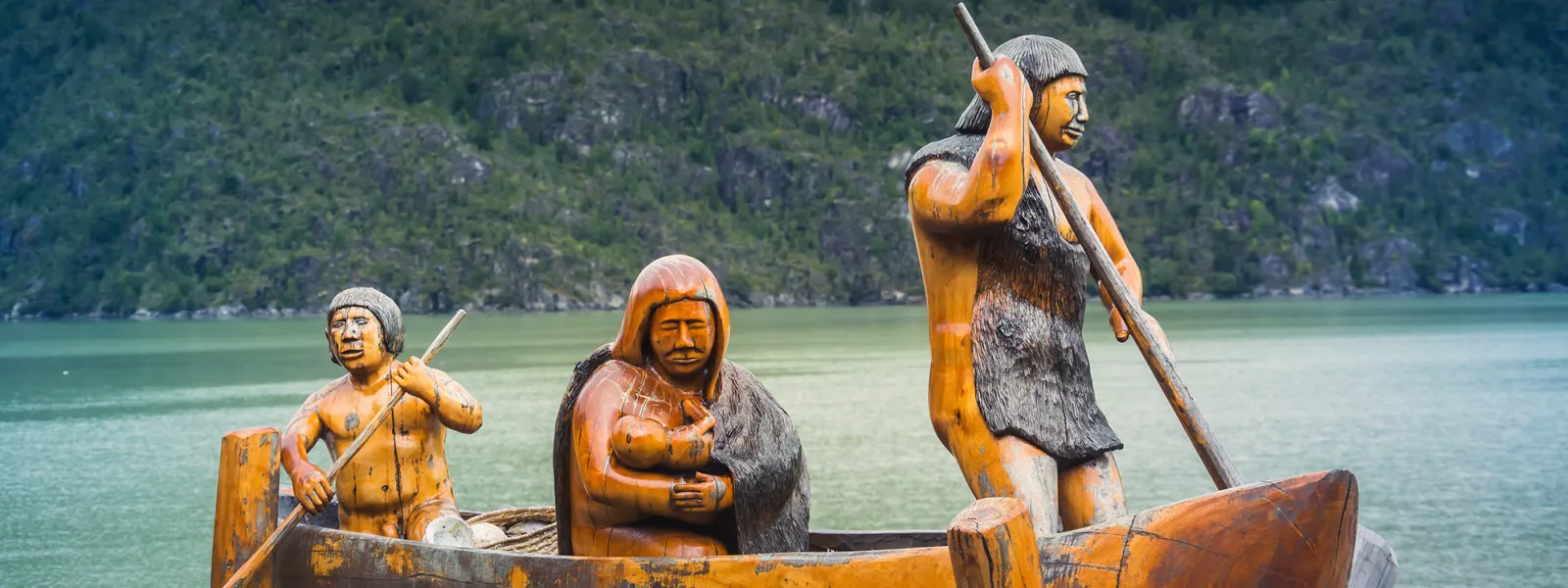
Chile: Report Finds That Approval of Salmon Farms in Kawésqar National Reserve is Illegal
The document prepared by national and international organizations highlights the incompatibility between this type of industry and the purpose of protection of the area. Even without an established management plan, there are already 57 salmon farming concessions, 113 in process and 6 resolutions of environmental qualification have been approved after the creation of the Reserve.
Local communities in the area of the Kawésqar National Reserve—including Kawésqar Atap, As Wal Lajep, Grupos Familiares Nómades del Mar, Residentes Río Primero and Inés Caro—provided Chile’s National Forestry Corporation (CONAF) with a technical report that seeks to provide information on the serious impact that the salmon industry generates on marine ecosystems. Prepared by the NGOs FIMA, Greenpeace and AIDA (the Interamerican Association for Environmental Defense), the report will be considered in the management plan that the government entity must develop and implement to comply with the protection of the marine waters that make up the Reserve.
"CONAF must guarantee compliance with what was established in the Indigenous Consultation and explicitly prohibit salmon farming in the reserve's management plan. This definition is key to the future health of the Patagonian marine ecosystems," explained Estefanía González, Greenpeace's Campaign Coordinator. "Salmon farming is completely incompatible with the maintenance of healthy marine ecosystems."
Historic process for the protection of the Southern seas
The creation of the Kawésqar National Reserve in 2018 was a key milestone for the participation of these native people in decision-making regarding the ecosystems that make up their ancestral territory. On that occasion, through indigenous consultation, the need to protect the waters and prevent the development of activities such as salmon farming was expressly established, considering the particular situation of fragility of the area and the Kawésqar cultural legacy, firmly linked to the sea.
In their above referenced report, the organizations conclude that salmon farming as an activity is incompatible with the protection objectives of National Reserves, from a legal and ecosystemic point of view, and in particular with the Kawésqar National Reserve, due to the many risks involved. Among the damages caused by this industry are biological contamination caused by the introduction of exotic species, the indiscriminate use of antibiotics, periodic massive salmon escapes, and the food and feces deposited on the seafloor, which generate anaerobic conditions and red tides. All of the above endangers a marine area with unique diversity and which the State itself has decided to protect.
"Allowing salmon farming in the Kawésqar National Reserve would render the protection given to the area useless," added Victoria Belemmi, FIMA attorney. "This point has even been recognized by the national directorate of CONAF, which when consulted in 2019 by the comptroller's office on salmon farming within protected areas, pointed out that according to the current national and international legal framework, including the Washington Convention, an activity such as salmon farming would not be admissible in an area designed to protect the marine ecosystem."
Statement from the Comptroller's Office
For its part, AIDA filed a letter with the Comptroller General's Office to solicit a ruling on the approval of a project to increase the biomass of a salmon farming center located in the Alacalufes Reserve, now Kawésqar National Reserve, which was operating under anaerobic conditions.
"The approval of this project meant that salmon production was authorized to increase in an area where there was already evidence that the carrying capacity of the site was exceeded," explained Florencia Ortúzar, AIDA attorney. "The fact that the center was located in the waters bordering the Alacalufes Reserve (now Kawésqar) makes it even more serious."
The low level of oxygen affecting the waters was evidenced by official documentation recognizing the regulations for that purpose—the Preliminary Site Characterization that the center's owner submitted to request the expansion, and several preliminary reports (INFA) confirming the situation.
With the approval, the center acquired authorization to almost triple its original production. Subpesca had noted the situation, even interposing an observation on the matter within the process. However, shortly thereafter, it issued its approval of the project. Subsequently, the Environmental Evaluation Service (SEA) approved the project by means of an Environmental Qualification Resolution (RCA, for its Spanish initials).
Read the report here (in Spanish)
